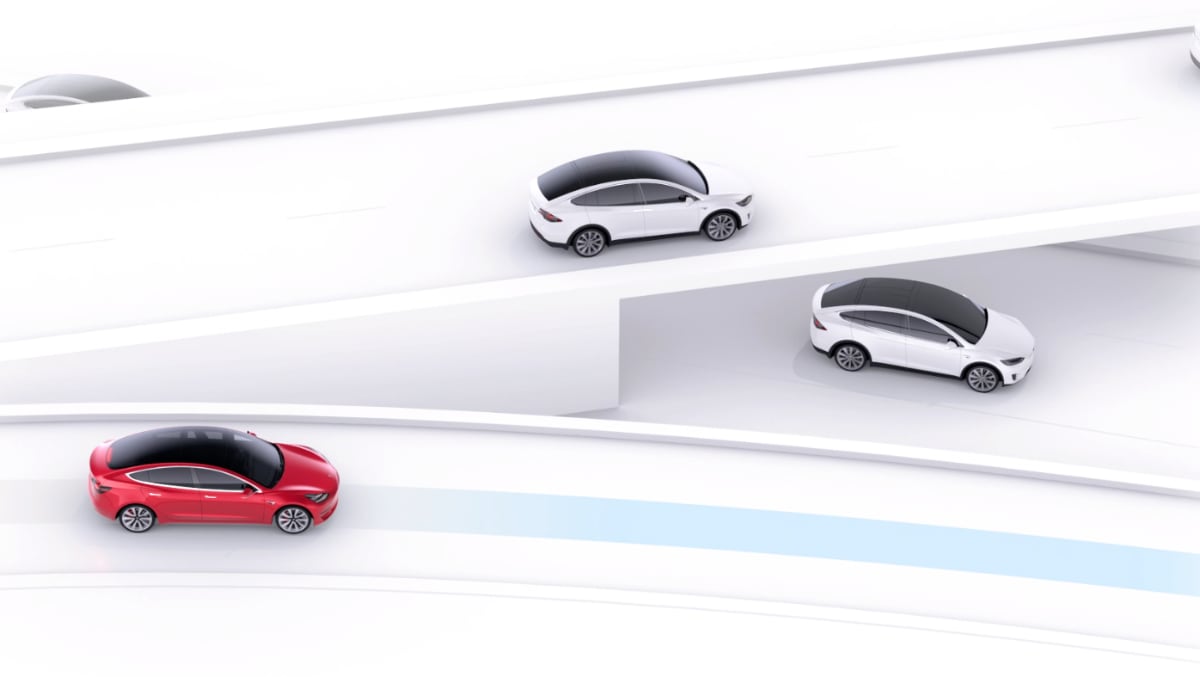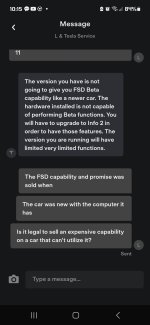Jordan's issue wasn't MCU1 to MCU2, it was AP2.5 to AP3
The overall issue is that certain hardware is less capable or incapable of working with with FSD. Regardless of the hardware, it's a question of whether an upgrade is needed or required.
In the case of the FSD computer itself, it's clear that FSD won't work without it. There are certain things that I couldn't see on my display before a hardware upgrade, such as traffic cones, but Tesla never promised me prior to buying the car that I'd have any particular graphical representation of the road.
Since I got the car, the cameras have changed. Mine had light leakage, so if I looked at the camera image at night with the turn signal on, I got a washed out image with a pink hue. But there was no promised feature prior to my purchase that would let me bring up a view of any camera on screen. So I paid for the replacement cameras.
Tesla has improved the hardware, bringing new capability, but it comes down to whether anyone was deprived of promised capability. Tesla promised that the cars had all the hardware needed for self driving, and there was a clear indication that a person who bought the self driving package at the time that the car was purchased, or who added it later, would be able to have FSD without having to buy new hardware.
Musk also said that if it turned out not to be the case, then Tesla would upgrade the computer for free. For anyone who doesn't have the FSD computer, there's no loss of promised capability without a hardware upgrade, but there is a loss of capability for things that were not promised, and didn't exist prior to the purchase of the cars with the old computers. That includes the ability to get a subscription, which nobody who bought a car prior to the new computer being standard had any reasonable expectation of being able to get.
So the question becomes whether Tesla is obligated to upgrade cars even though the upgrade would do nothing that's needed for the cars to do what was promised. Tesla doesn't have to offer a subscription option to anyone, and could offer it to selected customers.
So it comes down to whether a business can be forced to offer something for sale to anyone who wants it just because they offered it to someone else. If Amazon emails me something that says it's a limited, non transferrable offer to buy a certain TV accessory at half price, could you take them to court and claim that you have the same right to buy it at that price? Or could they claim that they made the offer only to people who bought a TV in the past three years, and that they will give you the offer if you upgrade your TV?

 www.notateslaapp.com
www.notateslaapp.com


